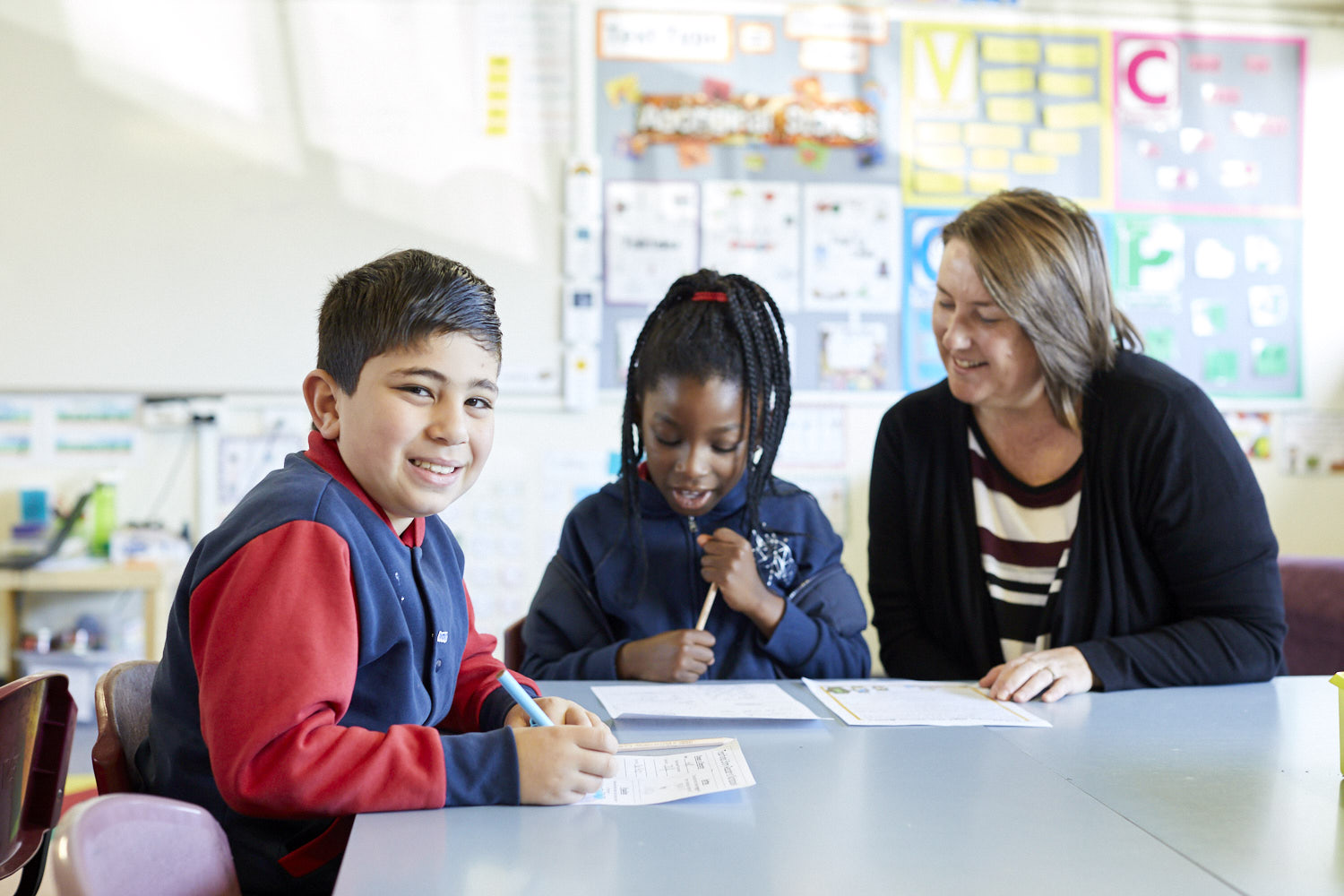On this page
Download this Fact Sheet:
Fact Sheet: Social and emotional learning (297.3 KB, PDF)
What is SEL?
SEL is a process where we build the skills and capacity to understand and manage our emotions, develop and maintain healthy relationships and navigate challenges. It also promotes social awareness and empathy, encouraging us to contribute positively to our communities.
A sense of self, emotional skills and social skills are at the core of SEL.
Sense of self
A sense of self can help children and young people feel confident in who they are and what they hope to achieve. It’s shaped by experiences in relationships, community, culture, and interactions with the world. Children and young people build their sense of self through feedback from others and the world. As they face new challenges and experiences, they can begin to see themselves as capable and valued and this is an important protective factor for mental health.
Emotional skills
Emotional skills include recognising, expressing, understanding and managing a wide range of feelings. These skills help children and young people develop the ability to interact well with others and navigate the world around them. Developing the ability to understand and manage their feelings enables children and young people build a strong sense of self, feel confident, and become curious learners
Learn more about emotional development in children and young people.
Social skills
Social skills focus on building positive relationships with others. Through their early relationships, children can learn to trust others to care for them and meet their needs. As they grow, children explore and practise social skills by watching, imitating and trying out new behaviours. This helps them understand how their actions impact others and appreciate that others may have different thoughts and feelings. These skills continue to develop and refine throughout childhood and adolescence. Read more about social development in children and young people.
Learn more about areas of social and emotional learning such as sense of self, emotional skills and social skills.
Why is SEL important for learning?
Research shows that children and young people’s learning is influenced by a range of social and emotional factors.
Developing strong social and emotional skills helps enable children and young people to thrive in their learning environments, leading to better academic outcomes. They can experience improved physical, and mental health and wellbeing, enjoy a better quality of life, and contribute positively to their communities.
How well individuals do in their learning community is affected by factors such as how:
- confident they feel about their abilities
- effectively they mange their behaviour
- they concentrate and organise themselves
- they can effectively solve problems
- positive their relationships are with educators and their peers
- effectively they consider others’ needs
- they understand and accept responsibilities.
Therefore, SEL and flourishing within the learning community are closely interconnected.
How teaching SEL can help support educational equity
Teaching SEL helps create environments where all students feel respected, safe and empowered. It also supports the development of inclusive, caring, just and healthy learning communities by:
- building stronger relationships with and between children, young people, family and communities
- delivering meaningful and engaging learning opportunities.
This helps foster environments where all students feel valued, safe and empowered to learn and grow.
How is SEL taught?
Many early learning services and schools already incorporate aspects of SEL. Be You’s approach encourages you to reflect on how your learning community already incorporates social and emotional skills learning and to evaluate how this is taught.
Be You provides resources for planning, teaching and evaluating SEL. This helps enable children and young people to develop these skills progressively throughout their education. SEL should be taught continuously, cumulatively and tailored to each child’s age and stage, just like numeracy or literacy skills.
Be You Professional Learning
Learn more about SEL in the Learning Resilience domain.
-
Bibliography
Cipriano C, Strambler MJ, Naples LH, Ha C, Kirk M, Wood M, Sehgal K, Zieher AK, Eveleigh A, McCarthy M, Funaro M, Ponnock A, Chow JC, Durlak J. (2023). The state of evidence for social and emotional learning: A contemporary meta-analysis of universal school-based SEL interventions. Child Dev. 2023 Sep-Oct;94(5):1181-1204. doi: 10.1111/cdev.13968. Epub 2023 Jul 13. PMID: 37448158. Retrieved from https://pubmed.ncbi.nlm.nih.gov/37448158/
Collaborative for Academic, Social, and Emotional Learning (CASEL). (2018). Core SEL competencies. Chicago: CASEL. Retrieved from https://casel.org/core-competencies/.
Durlak, J., Weissberg, R., Dymnicki, A., Taylor, R. & Schellinger, K. (2011). The impact of enhancing students’ social and emotional learning: A meta-analysis of school-based universal interventions. Child Development, 82(1), 405-432.
Goleman, D. (2015). The future of SEL, in Durlak, J., Domitrovich, C., Weissberg, R. & Gullotta, T. (eds.), Handbook of social and emotional learning (pp. 593–596). New York, NY: Guilford Press.
Humphrey, N. (2013). Social and emotional learning: A critical appraisal. London: SAGE Publications Limited.
Payton, J., Wardlaw, D., Graczyk, P., Bloodworth, M., Tompsett, C., & Weissberg, R. (2000). Social and emotional learning: A framework for promoting mental health and reducing risk behavior in children and youth. Journal of School Health, 70(5), 179-185.
-
External links
